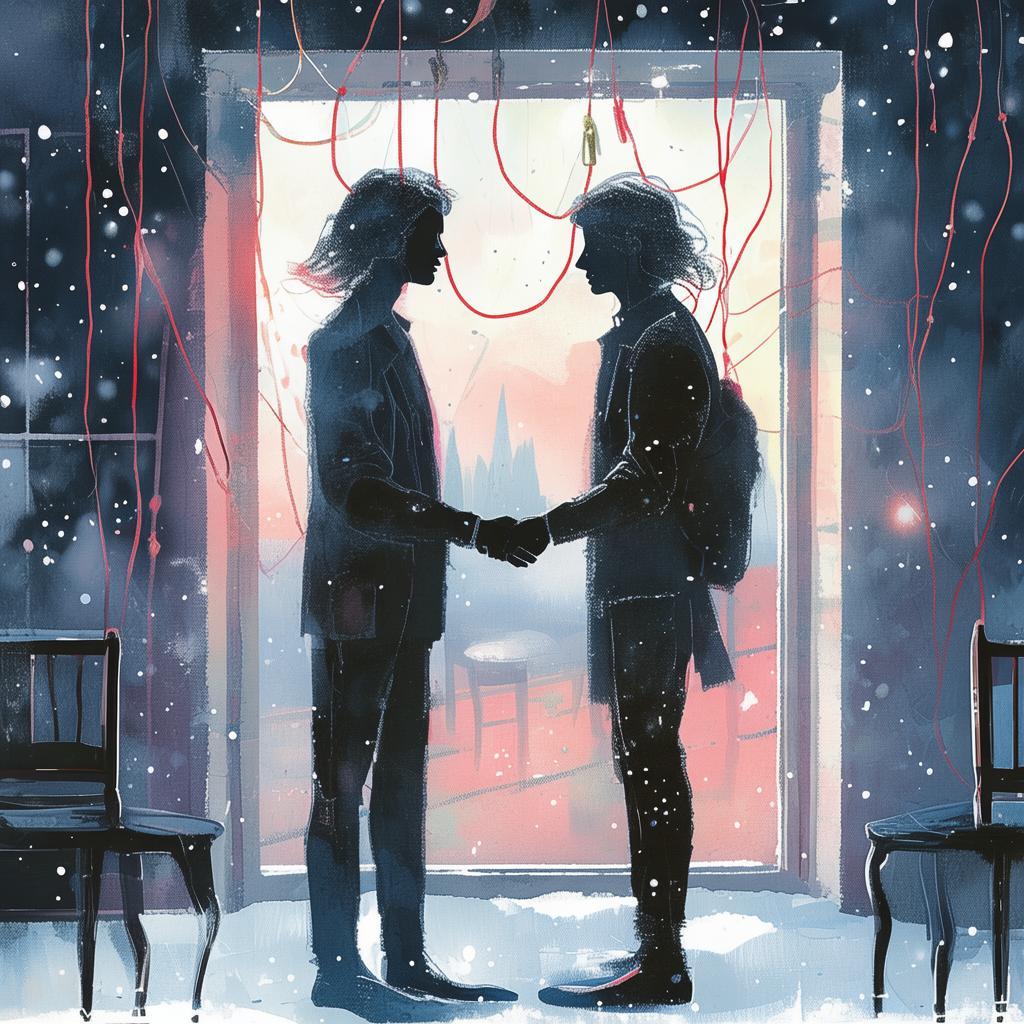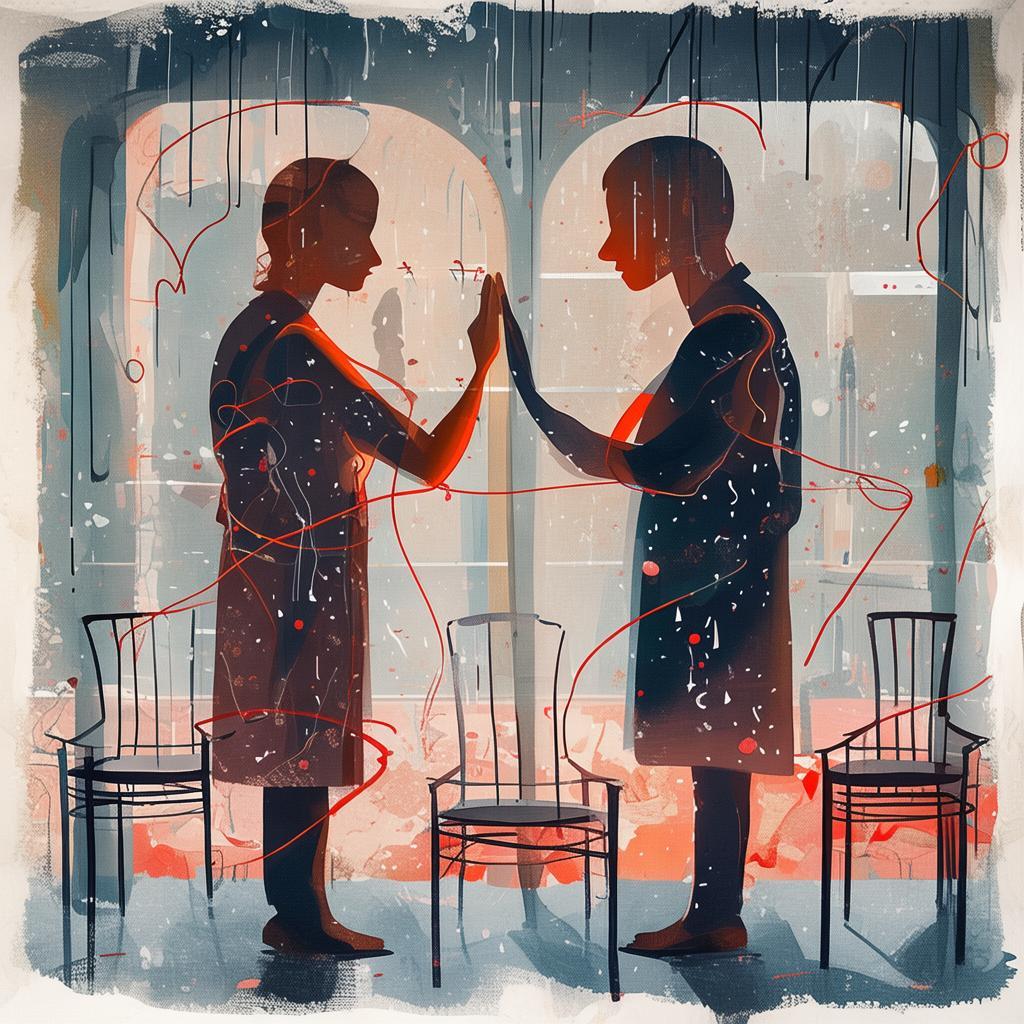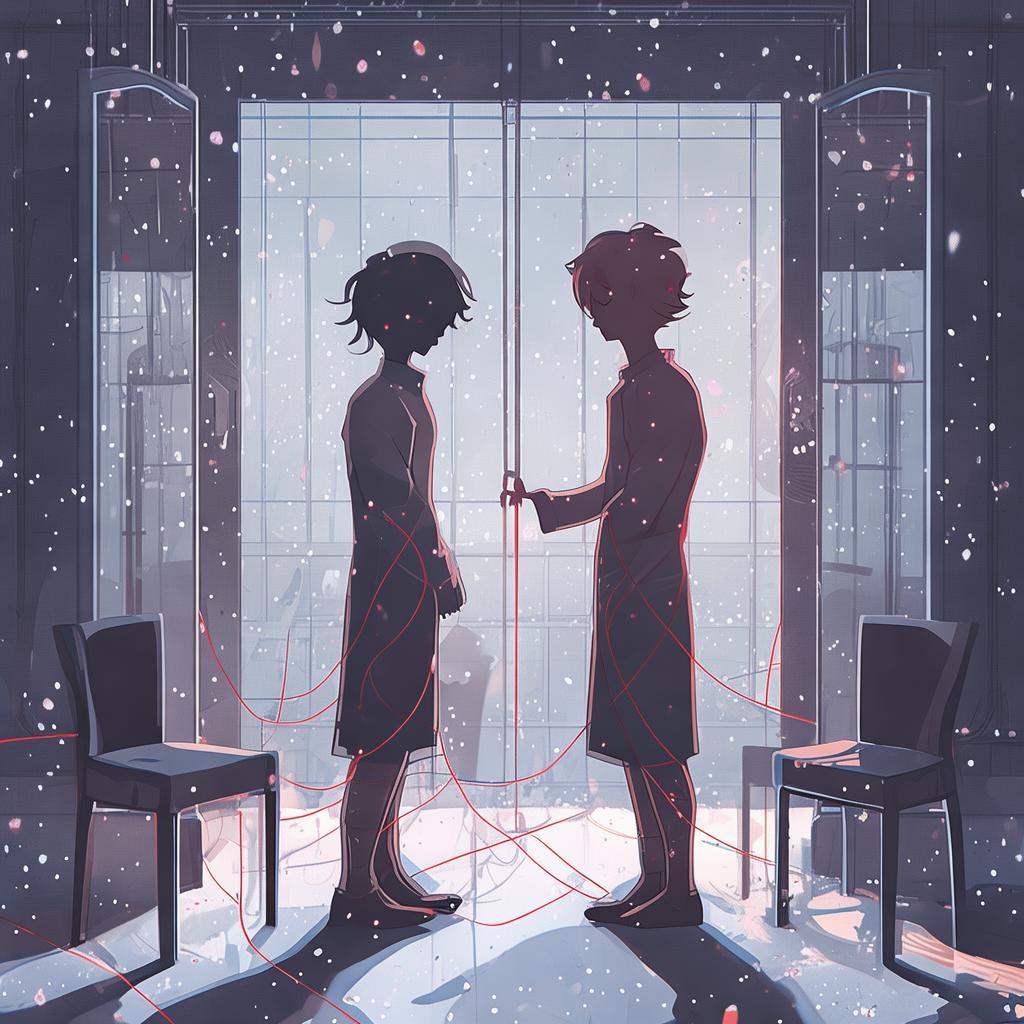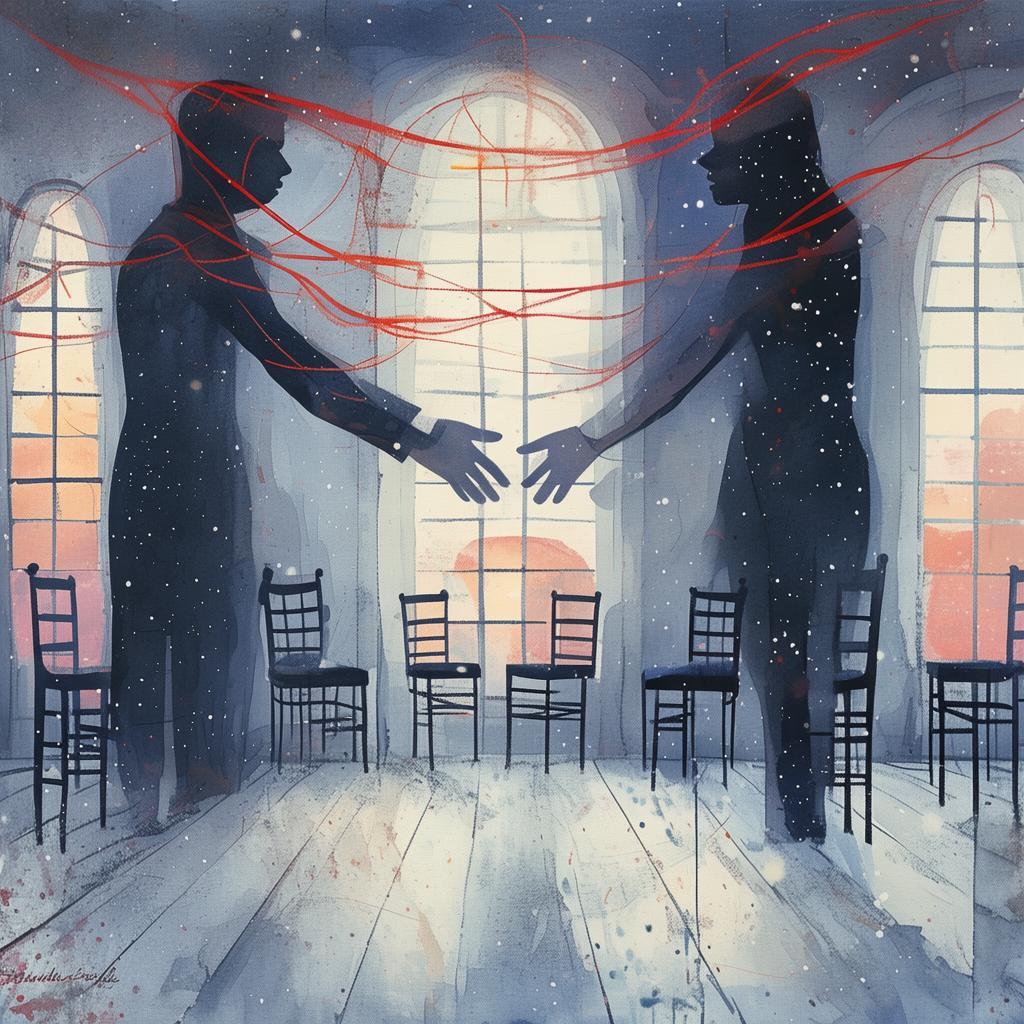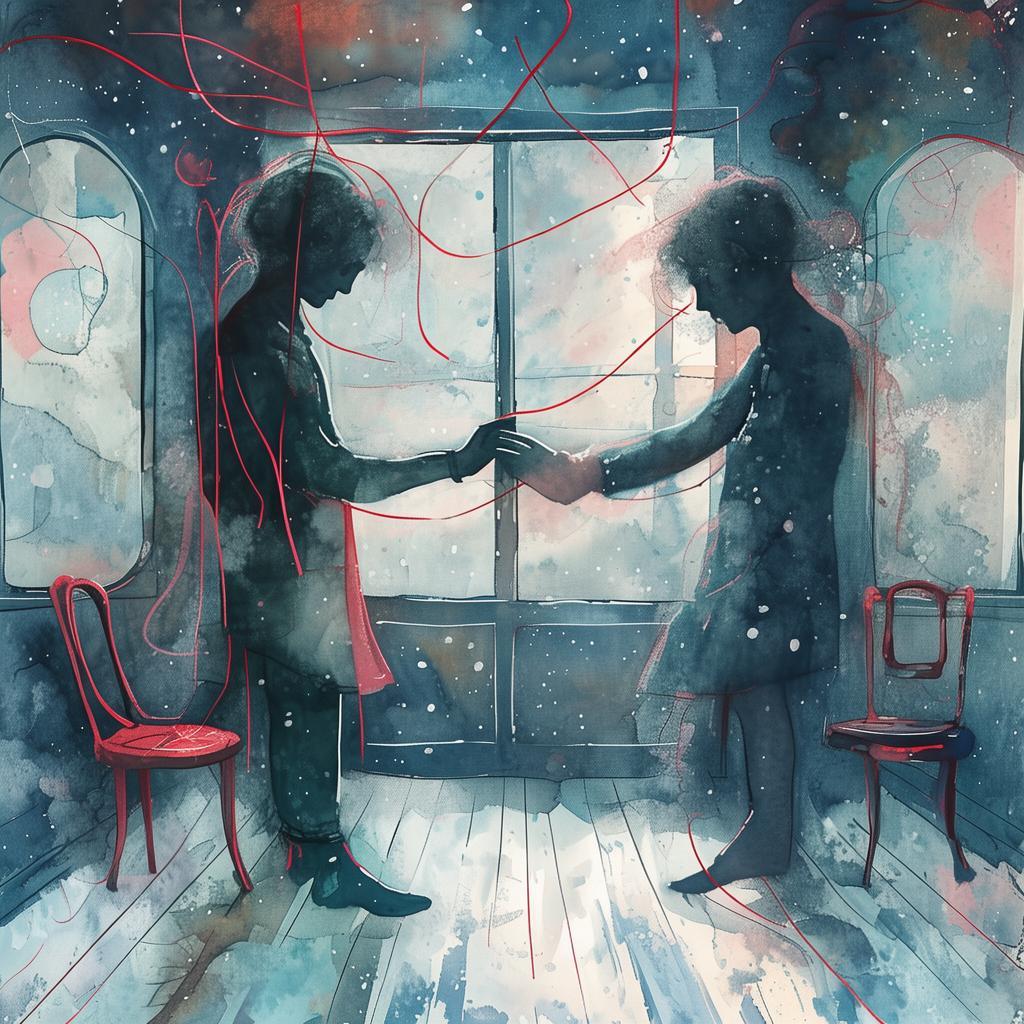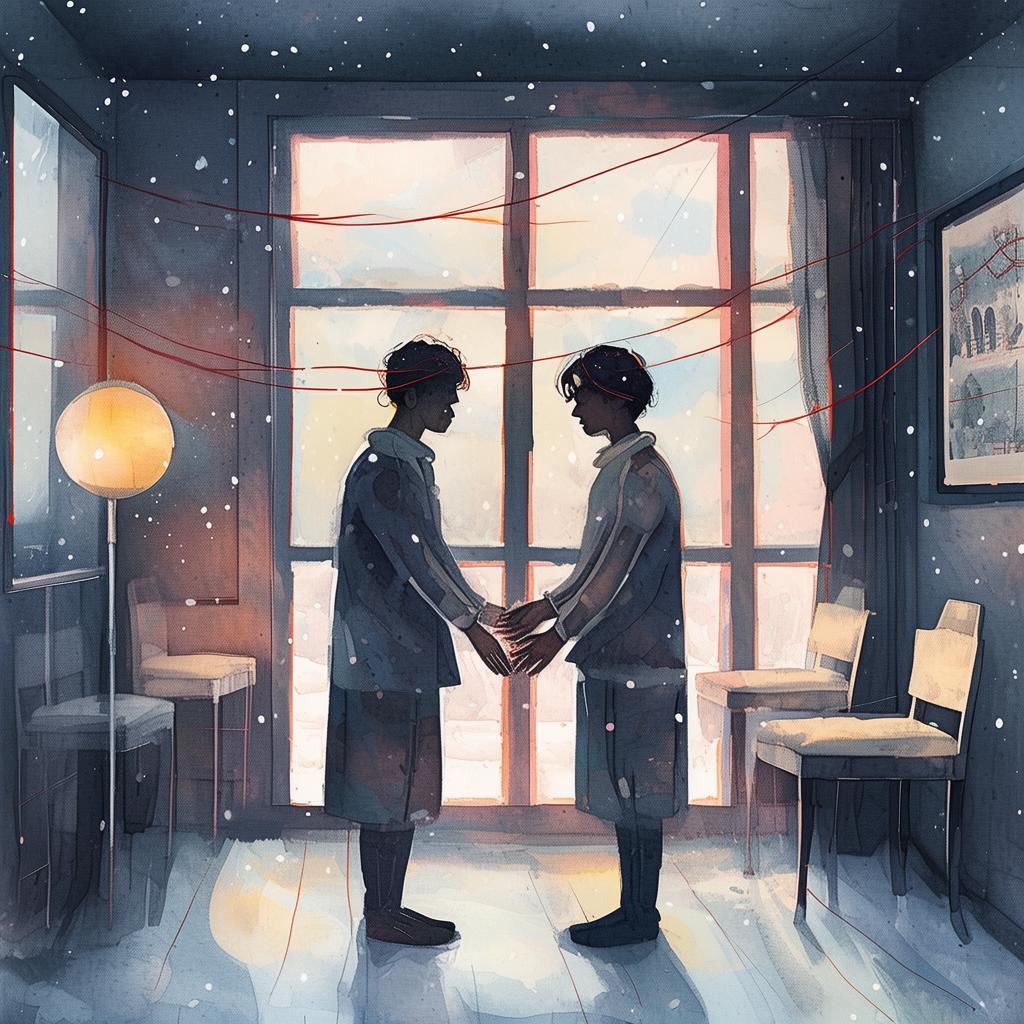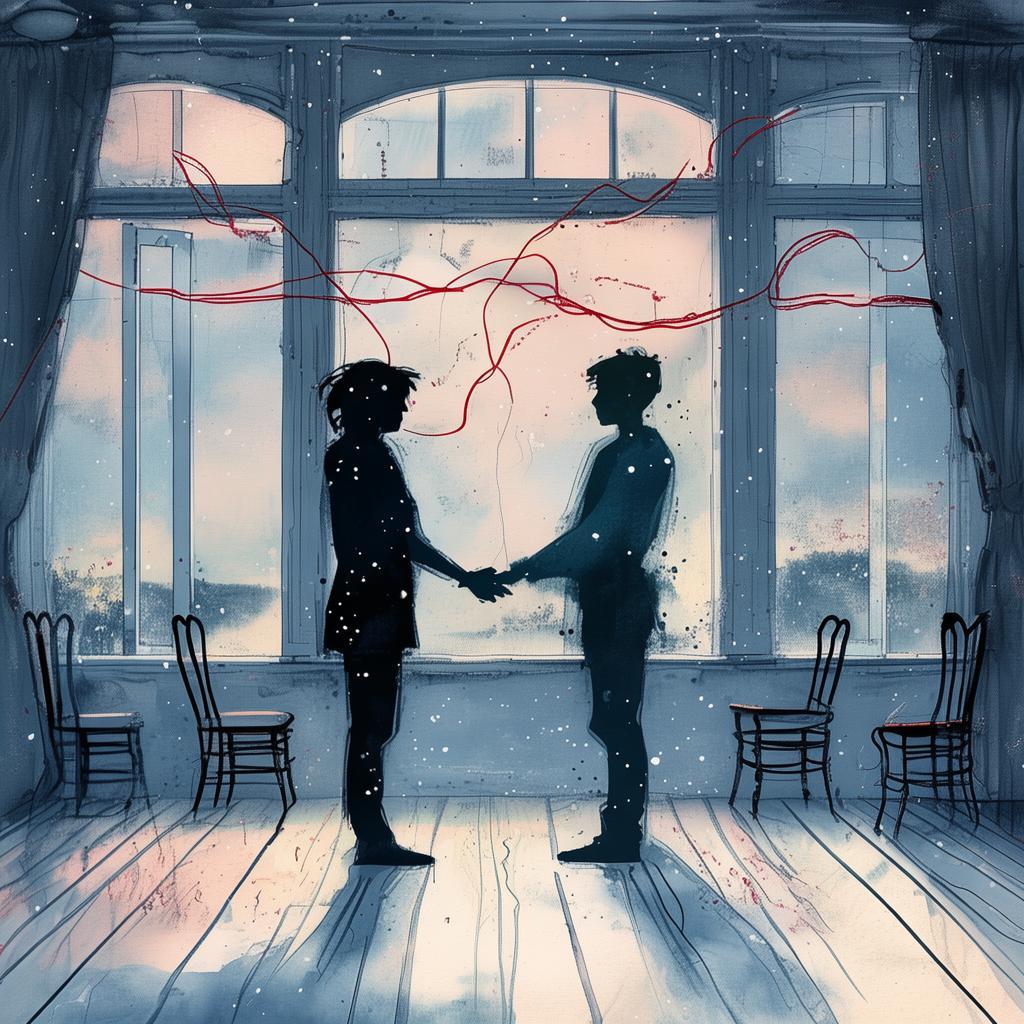The Tortured Philosopher's Quest for Harmony
The sun dipped below the horizon, casting a golden hue over the ancient philosophers' grove. In the heart of this serene place stood a solitary figure, the Tortured Philosopher, his eyes reflecting the twilight's last light. His name was Aelius, a man of profound intellect and a heart heavy with the weight of the world's questions. Beside him stood his companion, a young man named Marcus, whose gentle spirit contrasted sharply with the philosopher's troubled mind.
For years, Aelius had sought the answer to the ultimate question of life: what is true harmony? His quest had led him to the edges of knowledge, where he had discovered that the world was not as simple as right and wrong, but a complex dance of contradictions. Marcus, a student of Aelius, had followed him into this quest, drawn by the promise of understanding the world and himself.
"The world is a tapestry of threads," Aelius mused, his voice barely above a whisper. "Each thread represents a belief, a truth, or a lie. To weave them into harmony, one must understand their nature and purpose."
Marcus nodded, though his understanding was still nascent. "But how, Master? With so many threads, where do we begin?"
Aelius looked at Marcus, his eyes softening. "We begin with ourselves. Only by understanding our own biases and desires can we hope to perceive the world truly."
Their journey took them through the bustling markets of the city, where they encountered the myriad beliefs of the people. In one corner, a group of philosophers argued fervently about the nature of reality, while in another, a group of mystics chanted incantations, seeking connection with the divine. Aelius and Marcus walked through these markets, their presence a silent observation.
One day, as they passed by a small, dusty bookshop, Marcus noticed a young man being bullied by a group of youths. The young man, a boy of perhaps fifteen, was being taunted for his quiet demeanor and the oddness of his beliefs. Marcus felt a pang of empathy and stepped forward.
"Leave him alone," Marcus called out, his voice steady despite his youth.
The youths turned, their expressions a mix of surprise and anger. "Who are you, punk?" one of them demanded.
"I am Marcus," he replied, standing his ground. "This boy has done nothing wrong."
The leader of the group, a tall youth with a scar across his cheek, stepped forward. "He's a heretic. He doesn't believe in the gods like the rest of us."
Marcus's eyes met the boy's. "He has the right to believe as he wishes. We are all entitled to our truths."
The leader's laughter was derisive. "You're just a youngling. You don't understand the world."
Before Marcus could respond, Aelius stepped forward, his presence commanding the youths to fall silent. "We are all entitled to our truths," he echoed Marcus's words. "And the pursuit of truth is the highest calling of humanity."
The leader's eyes narrowed. "You're the Tortured Philosopher, aren't you?"
Aelius nodded. "I am. And I stand with this young man in his pursuit of truth."
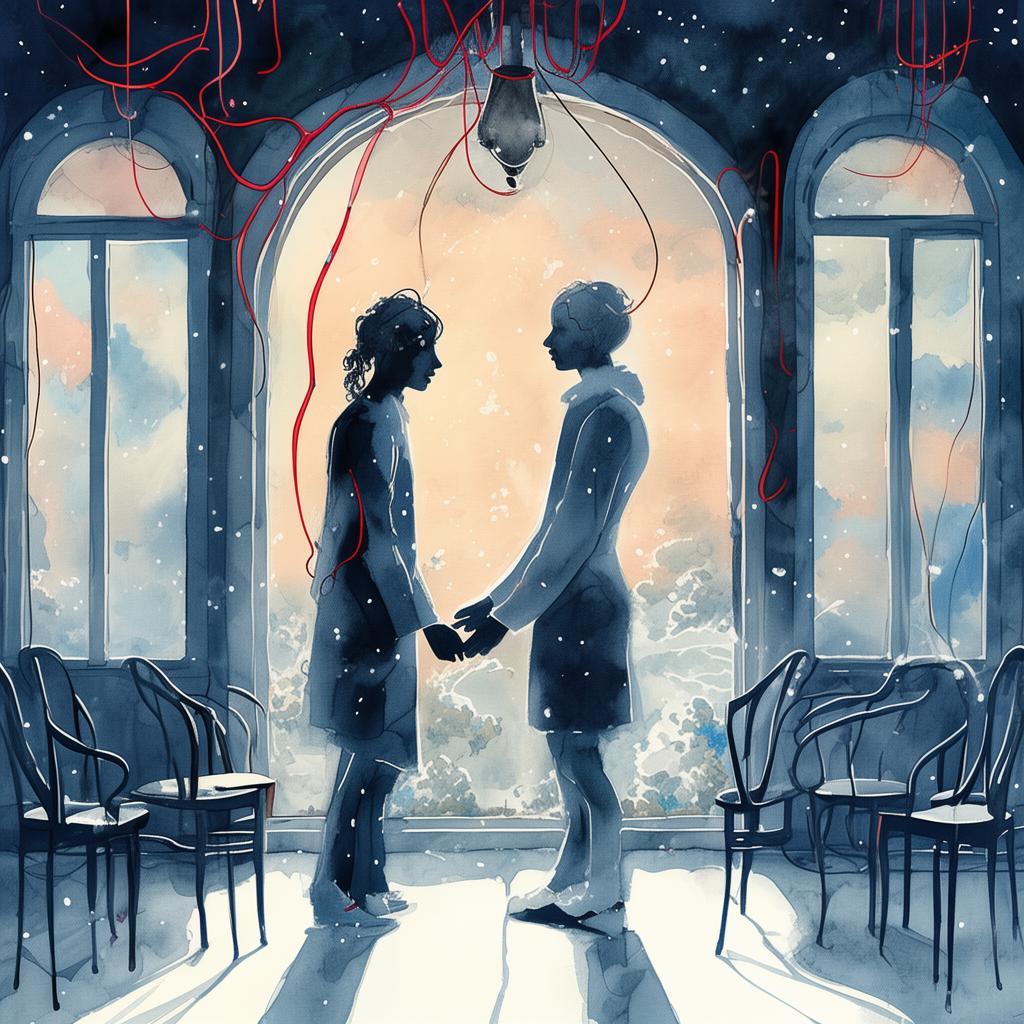
The youths, taken aback by the philosopher's support, reluctantly backed away. The boy, now visibly relieved, nodded his thanks to Marcus and Aelius.
As they continued their journey, Marcus began to understand the depth of Aelius's teachings. The philosopher's quest for harmony was not just a philosophical endeavor; it was a call to action, a call to embrace the diversity of beliefs and to seek understanding in the face of conflict.
One evening, as they camped by a tranquil river, Marcus asked Aelius a question that had been weighing on his mind. "Master, how do we achieve harmony when our beliefs are so different?"
Aelius gazed at the stars, his eyes reflecting the vastness of the cosmos. "Harmony is not the absence of conflict, Marcus. It is the ability to coexist with conflict. We must learn to accept that our truths are not the only truths, and that by embracing the diversity of beliefs, we can find a common ground."
Marcus's heart swelled with a newfound understanding. "So, it's not about changing our beliefs, but accepting them?"
"Exactly," Aelius replied. "And in accepting them, we find peace within ourselves and with others."
As the days passed, Marcus's transformation was evident. He began to see the world through a different lens, one that embraced the complexity of beliefs and the beauty of diversity. His relationship with Aelius deepened, their bond strengthened by their shared quest.
One night, as they sat by the same river, Marcus looked at Aelius and felt a profound connection. "Master, you have changed my life. I never thought I could find peace within myself, let alone in the world."
Aelius smiled, his eyes twinkling with warmth. "And you have changed mine, Marcus. It is through our shared quest that we have found harmony."
The river's gentle lapping against the shore was a symphony of peace, a testament to the journey they had undertaken. As they sat there, the Tortured Philosopher and his young companion realized that their quest for harmony had not only transformed their own lives but had the potential to change the world.
In the end, their journey was not just about finding harmony in the world's philosophies, but about finding it in themselves and in each other. And in that discovery, they found the true essence of their quest for peace.
✨ Original Statement ✨
All articles published on this website (including but not limited to text, images, videos, and other content) are original or authorized for reposting and are protected by relevant laws. Without the explicit written permission of this website, no individual or organization may copy, modify, repost, or use the content for commercial purposes.
If you need to quote or cooperate, please contact this site for authorization. We reserve the right to pursue legal responsibility for any unauthorized use.
Hereby declared.
